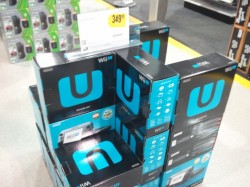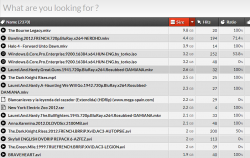A rather more normal week this week, although still very quiet. Not a bad thing really, coming when I’ve started obsessively watching the entire 8 seasons of ’24’ back to back on Amazon Prime. I have to say that I much prefer this method of watching than compared to buying the DVD or Blu-ray – the act of putting in a disc and waiting it to load has become a turn off for me, and I suspect it’s one of those things we’ll look back fondly one day but at the same time, wonder why we put up with it for so long.
Anyway, let’s get started.

Barely a week has gone by since Mega’s launch, and the takedown requests have already flooded in. More than 150 have been processed so far covering at least 250 files, and all have been dealt with quickly, and if Mega’s operators have learned their lessons, they will continue to get through them as quickly as possible.
Maintaining the protection offered by “safe harbor” is a very important cog in Mega’s plans to stay out of legal trouble (the other being the new encryption feature to help maintain the haze of “I have no idea what’s going on, honestly”), so I do expect them to do everything in their power to get this part up to scratch, and maybe even some extra voluntary stuff to prove that they’re serious. Of course, this won’t actually stop those seeking to use Mega for their piracy upload and download needs, just like YouTube cannot really stop every piece of pirated video from being uploaded and viewed.
What’s slightly trickier will be the introduction (or re-introduction) of third-party search engines for Mega, with one already claiming to host links to thousands of pirated downloads. Sure, these aren’t under the control of Mega themselves, but they do help to focus a spotlight on the darker nature of the website. But if I was in charge of copyright enforcement, sites like these can actually be of use, allowing you to quickly spot the popular downloads and then nip them in the bud before they get too popular (I would also do everything in my power to ensure there’s only one dominant search engine, so as to make this process a bit easier). As part of Mega’s “extra voluntary stuff”, they may also want to visit sites like these and voluntary remove content before waiting for the inevitable takedown notice, just to show that they are indeed serious (I believe this was RapidShare’s strategy, before they went all crazy and went with an approach that’s best described as self-harm).

When it comes to buying movies and TV shows, people are still mostly opting for disc over digital, a new NPD study has found. While digital distribution now accounts for 12% of the revenue pie (which does not include streaming VOD revenue), Blu-ray and DVD combined easily accounted for another 61% in 2012.
The dominance of discs was actually down compared to 2011 (form 64% to 61%), but that was largely due to the 7% decline in the average price of a Blu-ray title.
Internet based transactional VOD was dominated by iTunes, but Amazon, VUDU and Xbox 360 Video’s combined market share, for the first time, overtook Apple’s juggernaut.
For disc rentals, Redbox’s narrow lead in 2011 has grown considerably in 2012, now 14 percentage points ahead of by-mail subscription based rentals with 46% market share. Brick-and-mortar store rentals continue to hold on, with 22% market share.
What I found the most interesting in the report though was the watching habits of SVOD and electronic sell-through viewers. 80% and 90%, respectively, of all content watched for these two types of transactions were for TV episodic content. My years-late ’24’ binge viewing doesn’t sound too crazy now at all.
![]()
Nintendo has had to re-adjust its expectations for Wii U sales downwards after the console failed to meet the projected sales figures for the period until the end of March.
Analysts have blamed the relative high price of the console, compared to the company’s original Wii offering, as well as current “previous generation” offerings such as the Xbox 360 and the PS3 (both of whom have a greater library of games). But Nintendo is adamant that the solution does not lie in a price cut so soon after the debut of the console, but with delivering better games and also waiting for the public to be more educated about the potential of the console.

Wii U, unlike the Wii when it was first available, doesn’t seem to be suffering from any stock issues
Mario and Zelda games will help, of course, but the Wii U is competing against smartphone and tablet based casual gaming, as well as the traditional gaming sector dominated by the Xbox 360 and the PS3, so it will be a difficult mountain to climb for Nintendo. Is the Wii U *that* much better for games like Call of Duty and GTA than the Xbox 360/PS3, and we already know it’s not as ubiquitous as smart devices nor can it compete in terms of game prices. So there’s very little that makes the Wii U a must-have console, in my opinion. Once the PS4 and Xbox 720, both looks headed for official reveals this year, arrive with better graphics and who know what else, the Wii U may then already start to look outdated, despite its young age.
A first world problem it may be, but having too many devices that have overlapping functionalities all vying for the very limited number of connections your TV may have, can be problematic. So choosing a game console is more about choosing an ecosystem these days, one that you can live within and do all you want to do – for example, offline gaming, online gaming, disc playback, video streaming – without having to resort to other devices. Just not sure the Wii U is dominant in any of these areas, to be honest.
Well, we’ve reached the end of this rather short WNR. But as I always say, it’s quality, not quantity. And if you can’t do either, then just finish it as quickly as you can so you can go and watch ’24’.


